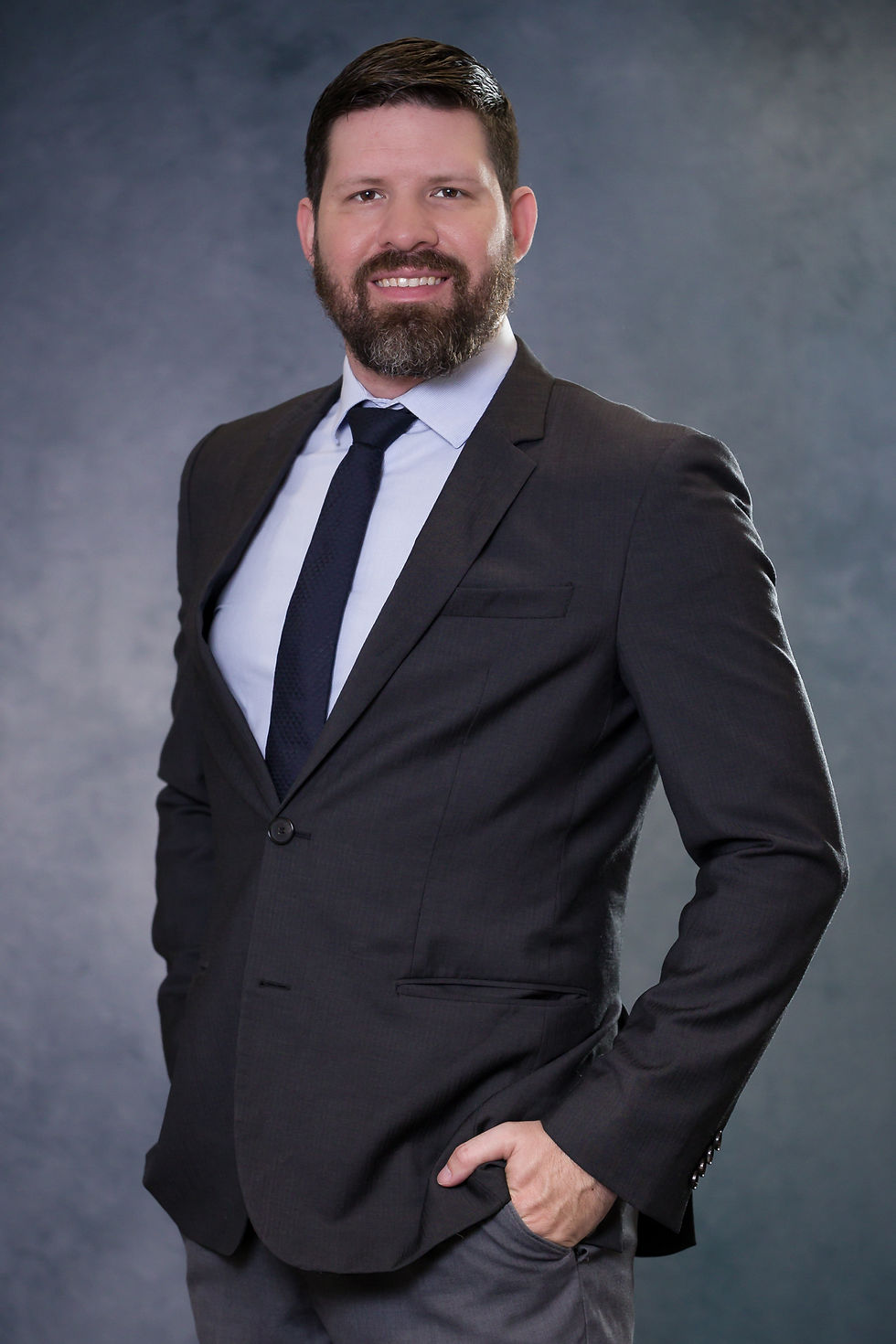"The neurosurgery is what made my eyes shine," Dr. Cesar Cimonari.
- Matheus Hooks/ Editor-In-Chief

- Jun 28, 2023
- 3 min read
“HEALTH” COVER EDITION - JUNE ISSUE

Photos: Luiz Mendes
Graduated in Medicine from the University of São Paulo (USP), Dr. Cesar Cimonari is a Specialist in Neurosurgery certified by the Brazilian Society of Neurosurgery and a renowned figure in the field.
His calling for medicine began at a very young age. Even towards the end of high school, he knew exactly what he wanted. The death of his grandmother, a cancer victim, was one of the reasons that led him to pursue a career in medicine.
"I always had a desire to do something that could change people's lives in some way. Since I was a child, I wanted to heal things. My grandmother passed away from cancer a year before I was born, and as time went on, I developed the desire to create a robot that could cure people. As I understood this more, I delved into the details, and by the time it was time to take the college entrance exams, I had already decided what I wanted to do, which was medicine."

The choice
"Neurosurgery has always been something that fascinated me, as a whole. And since I had already decided on pursuing medicine at the time, I decided to broaden my horizons and learn everything I possibly could. Neurosurgery further sparked my interest, and when I had the opportunity to observe some brain surgeries, that's when I truly found my calling."

Challenges at the beginning of the career
Unlike some other fields where students graduate and immediately start working, medicine has a much more gradual and slower transition, according to Dr. Cesar.
"I studied at USP, and at that time, we had access to the largest hospital in Latin America, which meant we also had earlier exposure to practical activities. The challenges at that moment were about overcoming insecurity, applying the knowledge we had acquired, and starting to understand how to act and prepare ourselves."

Family support
For the doctor, family is one of the most important things a person can have in life. It is the foundation and cornerstone of everything.
"It's the place we turn to when things aren't going well or when we need support. Another important and significant aspect is that even though we always strive for excellence in everything we do, when it comes down to impressing someone or seeking recognition for what we do, without a doubt, it's our family. I have unconditional support from mine."

Intense routine
"The intense routine sometimes makes it a bit difficult to spend time together, but fortunately, they understand it. My wife is also a doctor and goes through similar experiences, but the essential thing is to maintain a career with excellence and have family close by."
Professional fulfillment
"Today, I can say that I feel fulfilled considering where I am at the moment. However, when I look ahead, I say that I haven't fully achieved it yet because I still have a lot to accomplish. This feeling of fulfillment is something incredible in medicine. I have this notion that we are always striving for something, constantly evolving, and discovering new things all the time. Science never stops."

Dreams
When talking about dreams, Dr. Cesar Cimonari divides them into personal and professional aspirations.
"From a professional perspective, it is to reach the end of my life practicing medicine and neurosurgery, which I consider excellent, and always strive to improve. From a personal standpoint, perhaps it is to experience as many things as possible in the world. The most extravagant dream would be to be able to visit all the places in the world and why not beyond it?"
What can we expect from medicine in the coming years?
"Medicine has undergone significant transformations in recent years, and what lies ahead will only continue to increase. We have many technological paradigms shifting, such as Artificial Intelligence and the growth of remote healthcare due to the pandemic. Despite all the hardships, it has also accelerated advancements in telemedicine, which is just the tip of the iceberg of what's to come."
































